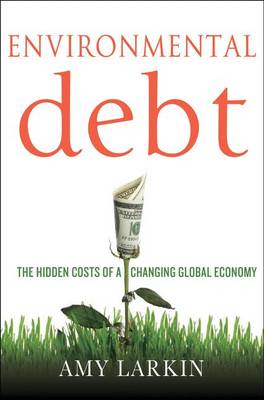Reviewed by jnkay01 on
With more than two decades of experience at the high-profile environmental group, Amy Larkin might be expected to publish a screed against corporations for their polluting greed. Instead, "Environmental Debt" highlights the efforts companies such as Puma, Wal-Mart, Coca-Cola, McDonald's and Tiffany & Co. — yes, the same brands many so-called tree-huggers might associate with global ills — have already made to reduce waste, change their supply chains and embrace environmentally sustainable practices.
Larkin, now a consultant with her own firm, isn't pushing for more government regulations, though she does encourage executives to invest in the infrastructure that governments build and maintain. She puts her pitch in terms businesspeople understand: It all comes down to money. Successful companies, Larkin argues, understand that they will pay more for resources and production down the line if they don't invest now in energy-efficient upgrades and other changes.
Corporations may balk at the cost of those changes now, but Larkin says they will face far greater deficits when they have unhealthy work forces, facilities damaged by extreme weather events and unstable supply chains.
"Environmental Debt" is presumably Larkin's consulting pitch in book-length form, but it raises a question that consumers might consider as well as corporations: Are you taking the long view?
http://bigstory.ap.org/article/larkin-puts-conservation-business-terms
Reading updates
- Started reading
- 1 July, 2013: Finished reading
- 1 July, 2013: Reviewed
